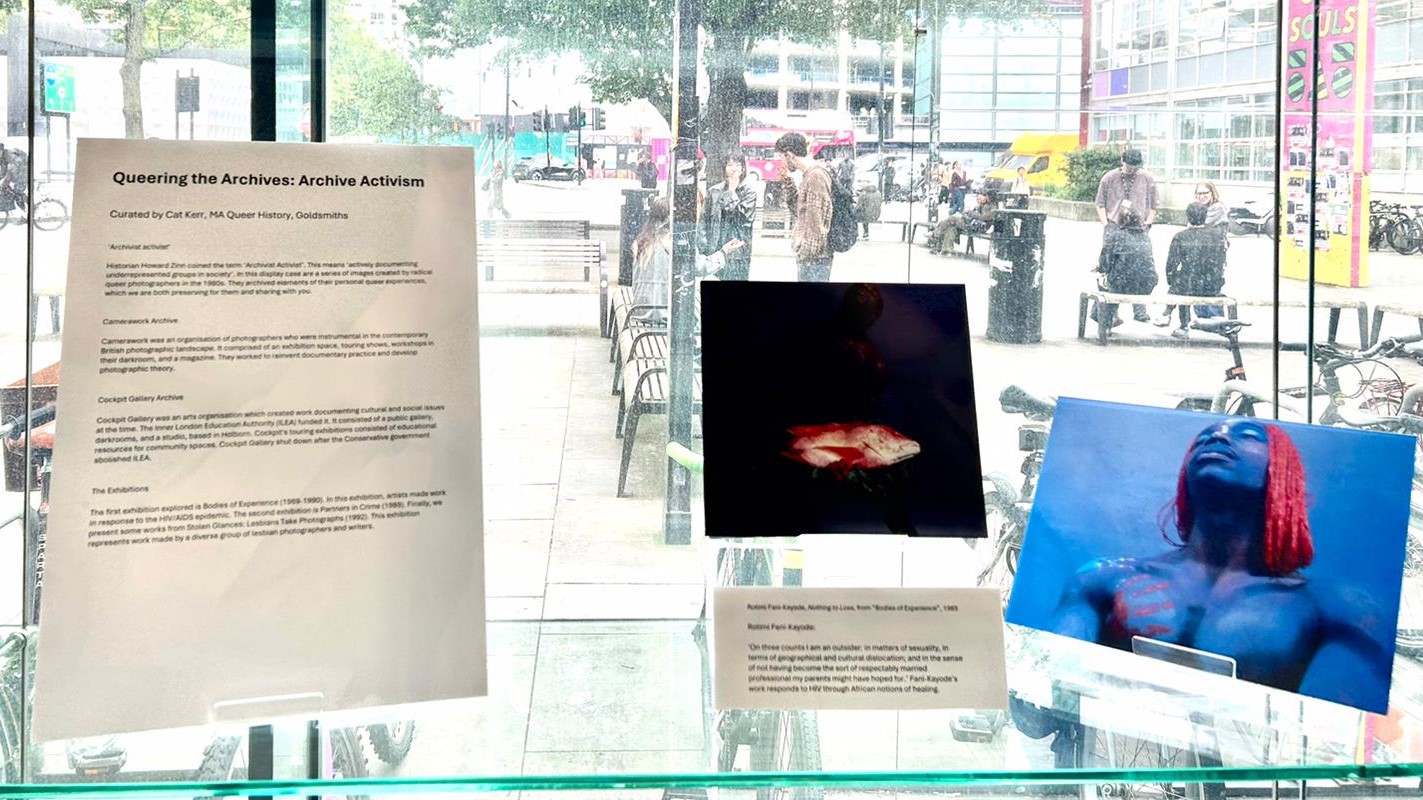
Back in February, Cat Kerr, from Goldsmiths, University of London's MA Queer History, undertook a placement as part of her course with us. You can read more about it in her first blog, published in March.
Here, ahead of Pride Month 2024, Cat shares her Manifesto for, ‘Queering the Archive’.
Queering the Archive: A Manifesto
Throughout this placement, the question I have held in my mind and been trying to find the answer to is: what does a queer archive look like? What are queer archival practices? I have tried to formulate a list of steps to take. I have created these from a combination of academic study, practical work, and talks with the people I've had the privilege of working alongside:
- Archivists need to be self-conscious of the fact that they are not neutral or apolitical – but with this authority comes the opportunity to right power imbalances.
- Pull histories and facts apart, challenging dominant voices and facts.
- Even archival material is imbued with power. Collect all forms of ephemera which make up a person's life. Not just the records and manuscripts which have dominated archives.
- Embrace the idea of being an ‘archivist activist’, by actively documenting underrepresented communities.
- Resist talking about communities instead of with communities.
- Allow your archives to be ever growing, adapting and learning.
- Don’t just reflect powerful, visible people, but also those who are ordinary or under-represented.
- Ensure your archive is accessible. Accessibility includes image descriptions, writing in plain English, digital preservation, and accessible websites.
- Don't erase the intersections of people's lives and identities.
- Resist homogenising minority groups.
- Where possible consider contacting the people whose lives are being archived.
- A network of authority records with links across the archive, and potentially to other relevant archives. Making it easier to research across many different archives.
The artists found within the Cockpit Gallery Archive and Camerawork Archive were documenting their own queerness as a form of resistance primarily to Section 28. And now the Archives and Special Collections Centre is continuing their activism through preserving their work for future researchers.
Questions?
For any questions about UAL Archives and Special Collections, please email archive-enquiries@arts.ac.uk

